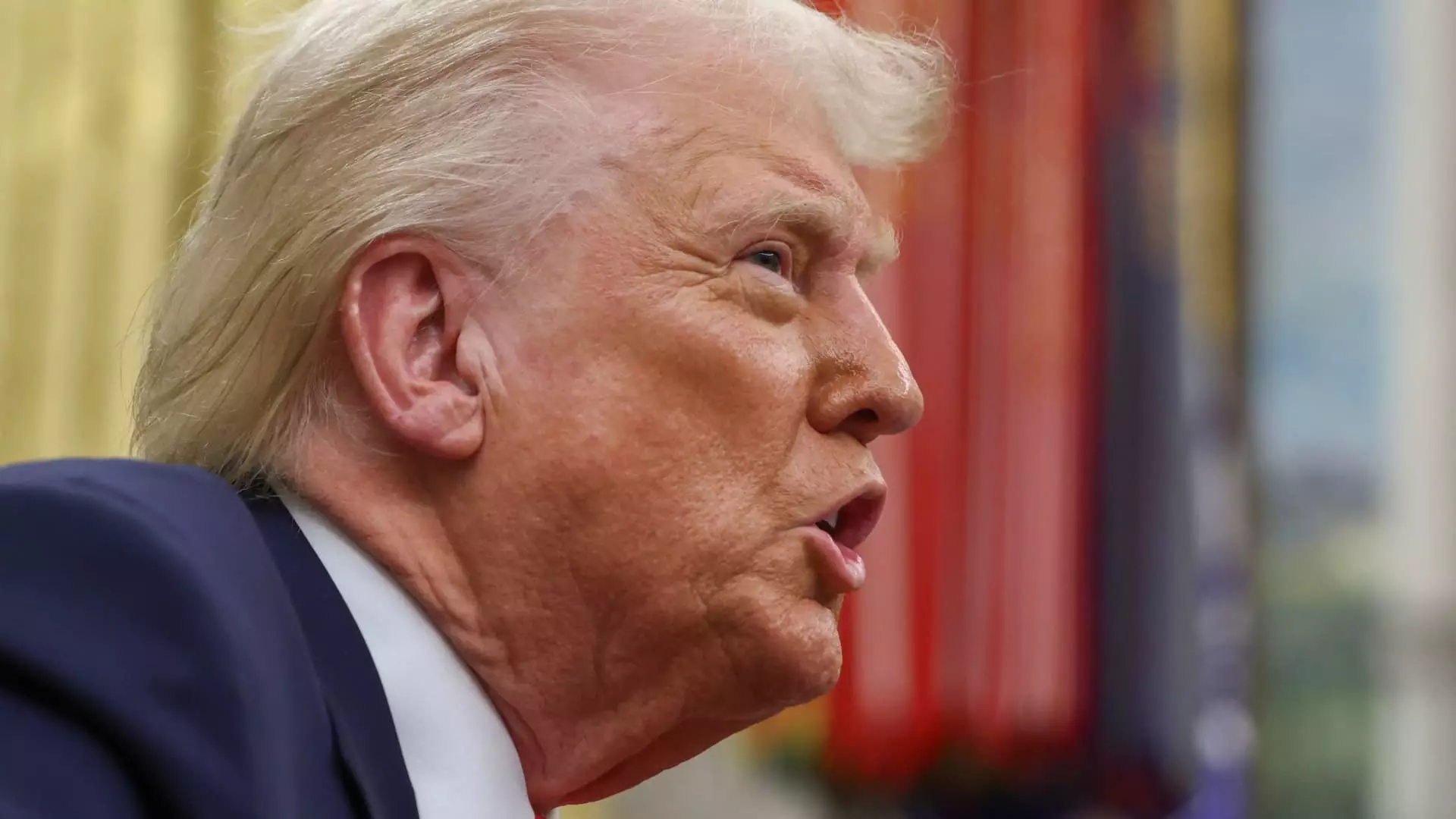This week has been tumultuous for stock market indices, which plunged sharply as the unpredictable waves of President Donald Trump’s tariff policies sent investors scrambling for safety. The market’s reaction showcased its fragile nature, dependent on the whims of a leader who seems more focused on theatrical posturing than sound economic policy. By openly embracing an aggressive tariff policy without a coherent strategy, Trump has thrown the financial landscape into chaos, raising critical questions about the administration’s economic direction.
When asked if his tariffs were the culprits behind the market’s woes, Trump diverted responsibility. In a typical display of deflection, he pointed fingers at “globalist” nations and corporations, suggesting that their downfall was his administration’s way of regaining control over economic injustices. This broad and vague accusation underscores the confusion in Trump’s rhetoric. By calling out “globalism” without any clear definition, he inadvertently invites misinterpretation and fear, sowing further uncertainty among investors and international allies alike.
The Confusing Narrative of “Globalism”
Trump’s consistent labeling of entities as “globalists” adds nuance to his ongoing narrative surrounding nationalism. However, the term itself is almost inscrutable within the context he often uses it. During his statements, he failed to specify how globalism affected the market, which only serves to amplify concern. By creating a catch-all villain in the form of “globalists,” he detracts from the real nuances of global economics and instead pushes a polarizing agenda that can stoke fear and discord.
Critically, this term has deeper implications, especially regarding its dubious roots tied to antisemitic conspiracy theories. The American Jewish Committee has clearly indicated that “globalist” often Code words aimed at Jewish individuals and organizations, positioning them as architects of a sinister plan against shared Western values. In trivializing this term in the context of market reaction, Trump overlooks the potential societal fallout of reckless rhetoric that feeds into dangerous stereotypes and historical prejudices.
Impact of Tariffs on the Market
In the fallout of Trump’s newly imposed 25% tariffs on Canada and Mexico, we witnessed an immediate market downturn that rattled the nerves of countless investors. Yet, in a stark show of denial, Trump claimed these tariffs had “nothing to do with the market.” Such statements, despite lacking grounding in economic reality, reflect the administration’s refusal to confront the tangible consequences of its policies. Instead of recognizing the disruption caused by tariffs, Trump chose to dismiss the immediate turmoil and reassure his supporters that the long-term vision remains intact—a rather dubious premise given the circumstances.
The recurring acknowledgment that short-term disruptions are an inevitable consequence of his tariff imposition indicates that Trump understands the volatility his policies introduce yet chooses to downplay their significance. His belief that foreign nations and companies will suffer as a result of his actions suggests a misguided confidence in a zero-sum game. However, the interconnectedness of today’s economy risks collateral damage, impacting not just the purported adversaries, but American businesses and consumers as well.
The Illusion of Control
Trump’s cavalier attitude toward the stock market, stating, “I’m not even looking at the market,” is alarming. It reveals a leader who appears detached from the economic realities faced by everyday Americans—those whose livelihoods depend on the stability the stock market can provide. Such statements may soothe his base but do little to address the fundamental crises that emerge from erratic policies.
Further complicating matters, his administration seems inclined to reconsider relations with NATO allies, deepening uncertainty among allied nations while putting critical international agreements at risk. The redefinition of foreign relations can directly affect both markets and global stability, reverberating beyond immediate tariffs to long-term diplomatic and economic relationships.
The present scenario calls for alarm. As stocks fluctuate wildly and as Trump’s rhetoric becomes an increasingly potent tool for promoting isolationist and combative policies, the illusions of control alongside a vague enemy do little more than distract from the real challenges facing the nation. Political nationalism is proving to be a double-edged sword, intensifying divisiveness while masking the economic implications of flawed tariff strategies.


Leave a Reply